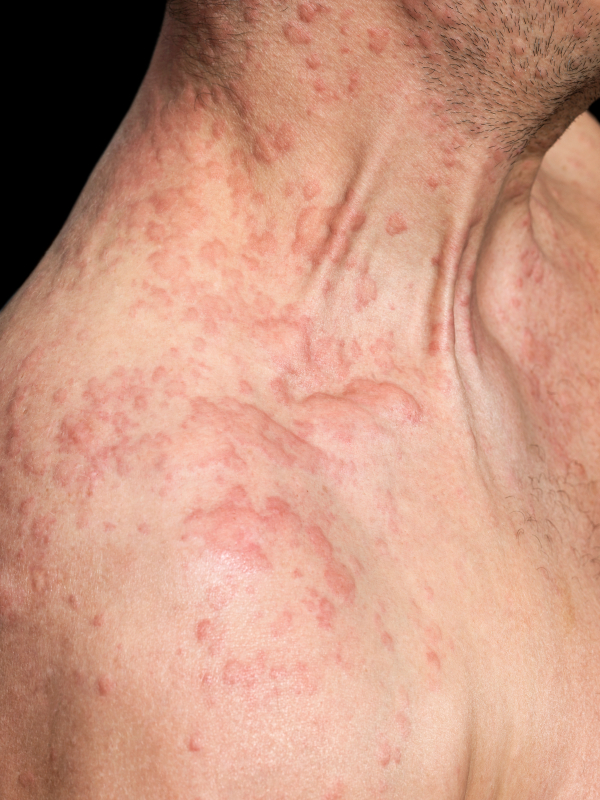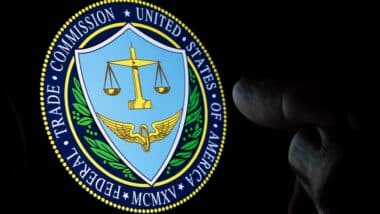 The Canadian Pharmacogenomics Network for Drug Safety has recommended that new patients prescribed carbamazepine receive genetic testing before taking the drug. This could reduce the risk of serious complications, including Stevens Johnson Syndrome (SJS). These recommendations were published in the peer-reviewed journal Epilepsia in March.
The Canadian Pharmacogenomics Network for Drug Safety has recommended that new patients prescribed carbamazepine receive genetic testing before taking the drug. This could reduce the risk of serious complications, including Stevens Johnson Syndrome (SJS). These recommendations were published in the peer-reviewed journal Epilepsia in March.
SJS is a type of autoimmune reaction. In autoimmune reactions, the body attacks itself, using the same mechanisms that it usually uses to fight off infection. In SJS, the body attacks the skin. This causes flu-like symptoms, which escalate to a skin rash with blisters, then sores, then ulcers. The damage can also spread to the eyes and mucus membranes.
SJS can be fatal, and survivors may find themselves with permanent disabilities including blindness and disabling and disfiguring scars. Many questions remain about SJS, but almost all cases are in response to various drugs. At the same time, research suggests that there is a genetic component to the disorder.
The group’s recommendations center on testing for certain alleles. Many genes come in multiple versions, or alleles. For example, the gene for eye color has alleles that code for traits such as blue eyes, brown eyes, green eyes, and other colors. Another gene, Human Leukocyte Antigen (HLA), codes for proteins in certain immune cells. It has been found that several alleles of the HLA gene make a person more likely to develop SJS and related issues.
Specifically, the group advises testing for two different alleles of the HLA gene: HLA-A*31:01 and HLA-B*15-02. HLA-A*31:01 is common across a number of populations, including those from Europe, Japan, Korea, and China. HLA-B*15-02, is common in people from China, Thailand, Malaysia, and India. Both of these genes have been linked to an increased risk of developing SJS after using carbamazepine.
While SJS often strikes without warning, genetic testing could warn patients who may develop the disorder in response to this specific drug. However, many patients with these alleles never develop SJS, and many people with SJS do not have these alleles. Despite the many questions about how exactly SJS is triggered, this testing could potentially prevent some cases of SJS.
Lawsuits have been filed by patients who took various drugs and went on to develop SJS. These lawsuits allege that drug companies have not done enough to protect patients from the risk of SJS and related disorders. These SJS lawsuits typically take the form of group lawsuits like class action lawsuits or multidistrict litigation (MDL).
Group lawsuits allow a number of plaintiffs to seek legal redress against the same defendant over similar alleged harm. The main difference is that class action lawsuits typically start as a group lawsuit, while MDLs start as multiple individual lawsuits which are later combined into a single coordinated legal action.
In general, SJS lawsuits are filed individually by each plaintiff and are not class actions.
Do YOU have a legal claim? Fill out the form on this page now for a free, immediate, and confidential case evaluation. The attorneys who work with Top Class Actions will contact you if you qualify to let you know if an individual lawsuit or class action lawsuit is best for you. Hurry — statutes of limitations may apply.
ATTORNEY ADVERTISING
Top Class Actions is a Proud Member of the American Bar Association
LEGAL INFORMATION IS NOT LEGAL ADVICE
Top Class Actions Legal Statement
©2008 – 2026 Top Class Actions® LLC
Various Trademarks held by their respective owners
This website is not intended for viewing or usage by European Union citizens.
Get Help – It’s Free
Help for Victims of Stevens Johnson Syndrome
If you or a loved one were diagnosed with Stevens Johnson Syndrome (SJS) or toxic epidermal necrolysis (TEN) after taking a prescribed or over-the-counter medication, you may be eligible to take legal action against the drug’s manufacturer. Filing an SJS lawsuit or class action lawsuit may help you obtain compensation for medical bills, pain and suffering, and other damages. Obtain a free and confidential review of your case by filling out the form below.
An attorney will contact you if you qualify to discuss the details of your potential case at no charge to you.
Oops! We could not locate your form.












